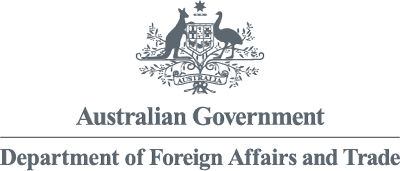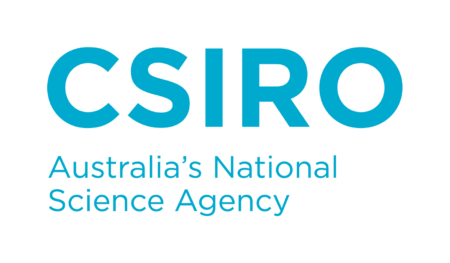Entrepreneurs hone innovations to tackle plastic waste in Indo-Pacific
Our Indo-Pacific Plastics Innovation Network is working with the region’s top innovators and researchers to turn plastic waste into sustainable solutions.
It only takes a quick glance down any supermarket aisle to see how plastic is central to our daily lives. It keeps our food and drinks clean and fresh. It’s durable. And it’s cheap. But plastic waste is a big problem in every part of our world. Because it’s also highly disposable.
Plastic doesn’t just pile up on land, it makes its way into the ocean. There are trillions of pieces of rubbish floating in the world’s oceans, and 14 million tonnes of microplastics are littering the seafloor.
Through our Indo-Pacific Plastics Innovation Network (IPPIN) we support entrepreneurs in the Asia-Pacific transform plastic problems into profitable and sustainable solutions. This work is part of our Ending Plastic Waste Mission, which has a goal of an 80 per cent reduction in plastic waste entering the Australian environment by 2030.
Here’s how some of our IPPIN alumni are making a real impact in tackling our global, urgent plastic waste problem.
Geo Trash Management: making new plastic from old
Indonesia’s Geo Trash Management (GTM) has partnered with Australia’s process engineering industry to design and commission the first commercial plastic oil distillation plant in Indonesia. This Australian-Indonesian company has created a new market for previously unrecyclable plastics and rubber through advanced recycling techniques.
Andrew Sinclair is a GTM Founder and Project Director.
“We are converting zero value plastics into a valued resource, promoting a new revenue stream for waste aggregators, pickers and communities,” Andrew said.
Andrew and his team received a competitive grant from IPPIN to advance the technology around the purification of plastic pyrolytic oil. Pyrolytic oil can be used as a substitute for petroleum. The grant will help develop equipment to produce a high-quality, commercial-grade hydrocarbon used to make new plastics, lubricating oils, or other industrial chemicals.
“Maintaining simplicity and affordability without compromising quality or safety is key to the success of our technology,” he said.
Andrew said the IPPIN grant allowed GTM to bring more technology and processing power to Indonesia.
“We’ve connected with Australian leaders in technology development from the hydrocarbon engineering industry. This grant will help us design and commission the first commercial plastic oil distillation plant for Indonesia,” Andrew said.
“For the process to be effective, the business strategy must be fit for purpose, and suitable for the community, local customs, and economics. It must be totally aligned with regional legislation and meet international environmental standards.
“The IPPIN grant is helping us achieve this. And all in cooperation with the people of Indonesia.”
More than just a grant
Andrew said the mentoring and acceleration programs provided by IPPIN have been a game changer for GTM.
“The programs helped us organise, structure and simplify our management approach as well as customer communication,” Andrew said.
“This included exposure during the 2022 ‘Road to G20: Beating Plastic Pollution from Source to Sea’ summit in Bali, where we networked and pitched our plastic innovation before a panel of judges.”
He said the IPPIN program opened the gate to a new road of collaborative possibilities from many high-level players in the sustainable development space and, “definitely put the spotlight on our work here in Indonesia.”
Growing bigger, better
By the end of the IPPIN project period, GTM will have a fully operational demonstration facility that can process more than 200 tonnes of plastic waste a year.
Andrew says this is suitable for a community of 10,000 people, is financially viable, and is a great opportunity for future investors. But scaling up the capacity of the facility will be important to deliver sustainable impacts on bigger cities.
“Through our work with IPPIN we hope to work towards facilities to manage 10 to 60 tonnes of waste plastics per day,” Andrew said.
“Today this is our purpose, tomorrow this will be our legacy for future generations.”
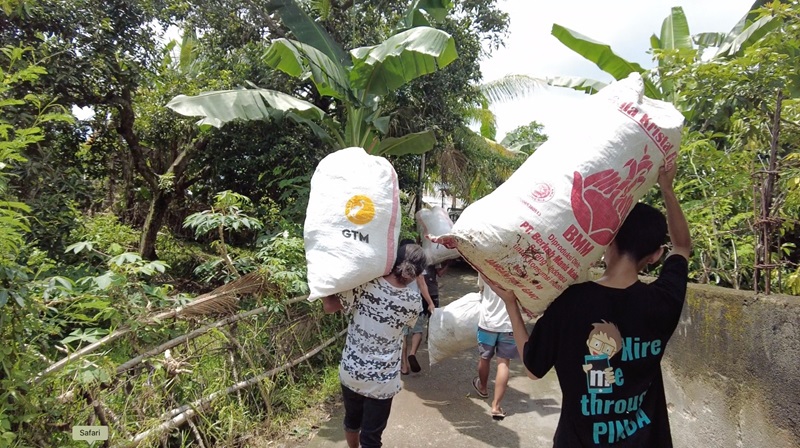
Within the Indo-Pacific region, it is estimated there are between five and ten billion pieces of plastic on the coastline. By 2040, global plastic production is forecast to double. GTM, an Australian-Indonesian team who participated in IPPIN’s innovation programs are finding ways to recycle previously unrecyclable plastics and rubber through advanced recycling techniques.
Greenhope: disrupting conventional plastics with a humble vegetable
Indonesian start-up Greenhope is well on the road to replacing traditional plastics with biodegradable plastic made from a humble vegetable. The company has developed technology to produce commercial-grade biodegradable packaging out of the starch from a root vegetable known as cassava.
Greenhope has already successfully replaced 12 billion pieces of conventional plastic with biodegradable plastic. And improved the welfare of 179 Indonesia cassava farmers along the way.
Greenhope were winners of the 2022 Plastics Innovation Hub Indonesia Accelerator Program Pitch Event. The award provides validation and recognition for actions to promote sustainable practices and innovation—in line with Sustainable Development Goal 12: ‘Responsible consumption and production’.
“This recognition helps us build credibility and allows us to gain more trust and support from our stakeholders including, customers, partners and investors,” Peter said.
Why cassava?
Cassava is a renewable source abundantly available in tropical countries, such as Indonesia, because it’s easy and cheap to plant and harvest. It has a high starch content compared to most crops, which makes cassava an ideal source for biodegradable and compostable packaging.
“Cassava leaves zero microplastics and zero harmful toxins in the environment,” Peter said.
Boosting a new market
Peter said less than one per cent of all plastics on the market are biodegradable and compostable.
Participating in the IPPIN program has helped Greenhope accelerate the adoption of sustainable practices and innovative solutions. The company is focussing on existing industries such as hotels, restaurants and cafés, e-commerce and logistics, and agriculture.
“According to Greenpeace, in 2019 the top three fast-moving consumer goods brands produced a total of 6.8 million metric tonnes of plastics,” Peter said.
“Converting just a small portion of the plastic usage in this industry could propel the world towards a circular economy.”
New partnership goals
IPPIN provides opportunities to collaborate with a network of stakeholders, including policymakers, government bodies and industry leaders.
Through this network, Peter is confident Greenhope can achieve a meaningful and lasting impact on the environment, society – and the plastics industry.
“We aim to position ourselves as a nationally recognised solution to plastic waste,” Peter said.
“Our goal is advocate for comprehensive strategies, initiatives and policies that prioritise the reduction of conventional plastic waste and promote the adoption of sustainable alternatives—not just ours.
“These cassava-based materials are just one viable solution to redesign conventional plastics and mitigate the environmental impacts associated with plastic waste.”
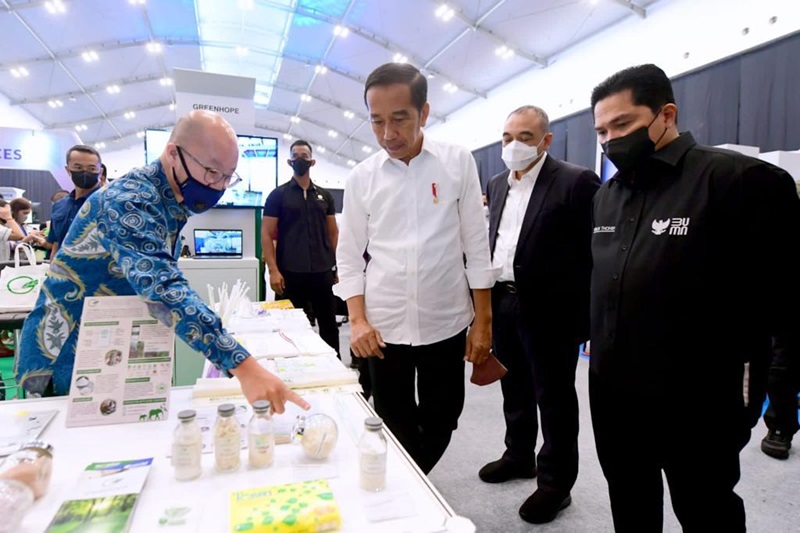
The Indonesian government aims to reduce marine plastic debris by up to 70 per cent by 2025. Start-ups such as Greenhope play a pivotal role in contributing towards these national plastic waste reduction targets. Here, a Greenhope team member is demonstrating their commercial-grade biodegradable packaging derived from cassava to Indonesia’s President, Joko Widodo.
Citarum Action Research Program: revitalising the world’s most polluted river
Citarum Action Research Program is a multidisciplinary program with Australian and Indonesian partners driving ambitious targets to shift waste and clean the world’s most polluted river. As alumni of the 2022 Accelerator program, the Citarum program received an IPPIN grant to continue their work.
The Citarum program aims to reduce the amount of waste entering one of the longest rivers in Java, Indonesia: the Citarum.
More than 25 million people rely on the river for water, food, livelihoods, and their energy needs. But the Citarum is the world’s most polluted river.
The Citarum program is a collaboration between us, Monash University, Universitas Indonesia and Universitas Padjadjaran. Working closely with local governments and villages, a co-designed waste monitoring program is underway.
The aim is for communities and businesses along the Citarum to access new technologies and practices, driving a shift towards circular solutions that recycle, remanufacture and reuse waste.
This includes the plastics that are mixed in with the 20,000 tonnes of solid waste being discarded into the river each day.
Paving the way towards zero waste
There are 600 villages lining the river. None of them have access to basic waste and sanitation services. This means 280,000 tonnes of industrial wastewater is also discharged directly into the river every day. The Citarum program, through the IPPIN grant, is working to change this by building a pilot plastic waste recovery facility in collaboration with the West Java Government.
The West Java plastics waste pilot will be used as a model to expand further community-based, zero-waste solutions within priority villages across Java. This will help communities move away from dumping or discharging waste. They are shown how to shift towards circular solutions that recycle, remanufacture and reuse what they can.
Dr Denise Hardesty is our Senior Principal Research Scientist and plastic pollution researcher.
“This program is a great example of what can happen when we bring together the skills, talent and knowledge from multiple organisations to identify and put in place change on the ground,” Denise said.
She said working alongside the teams in Indonesia is critical in ensuring the outcomes of the project meet the goals identified by Indonesia for the Citarum river and its communities.
“We’ll be working closely with our partners to meet their goals and to support cleaner communities where economic benefits are retained locally,” she said.
Leading the way, together
The Citarum program recently signed a Memorandum of Understanding with the West Java Government to achieve zero plastic waste discharge into the Citarum river.
Dr Jane Holden from Monash University said the five-year collaboration brings together research partners, local communities, government, and industry under a ‘living laboratory’ situation to address river and environmental pollution.
“Only through shared innovation and learning can we create, test and evaluate integrated approaches to abate waste leakage from communities without access to waste infrastructure, and inform future investment,” Jane said.
She said the knowledge from the Citarum program will inform further global strategies to address river pollution.
“It will also help other degraded rivers in Southeast Asia, in improving the environment and the lives of many communities who depend on rivers for their source of water and livelihoods,” she said.
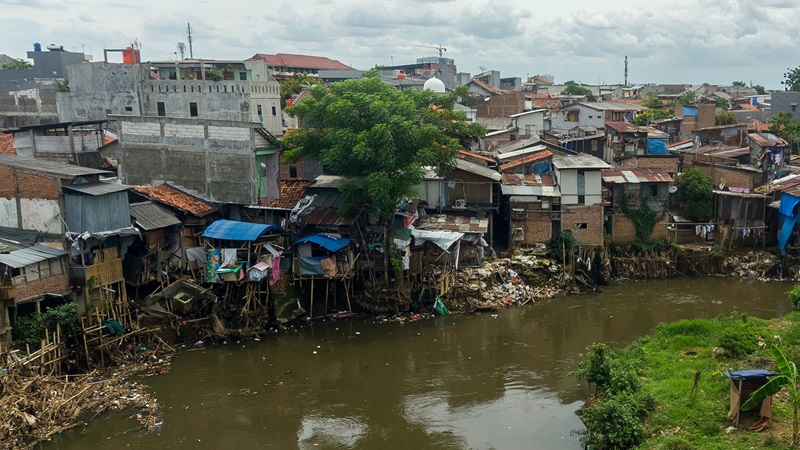
More than 25 million people rely on the Citarum river for water, food, livelihoods, and their energy needs. The Citarum Action Research Program is a multidisciplinary program driving a shift towards circular solutions that will recycle, remanufacture and reuse waste.
IPPIN is supported by the Australian Government, in partnership with Indonesian, Thai and Vietnamese governments and is delivered by CSIRO. It forms part of CSIRO’s Ending Plastic Waste Mission, which has a goal of an 80 per cent reduction in plastic waste entering the Australian environment by 2030.

